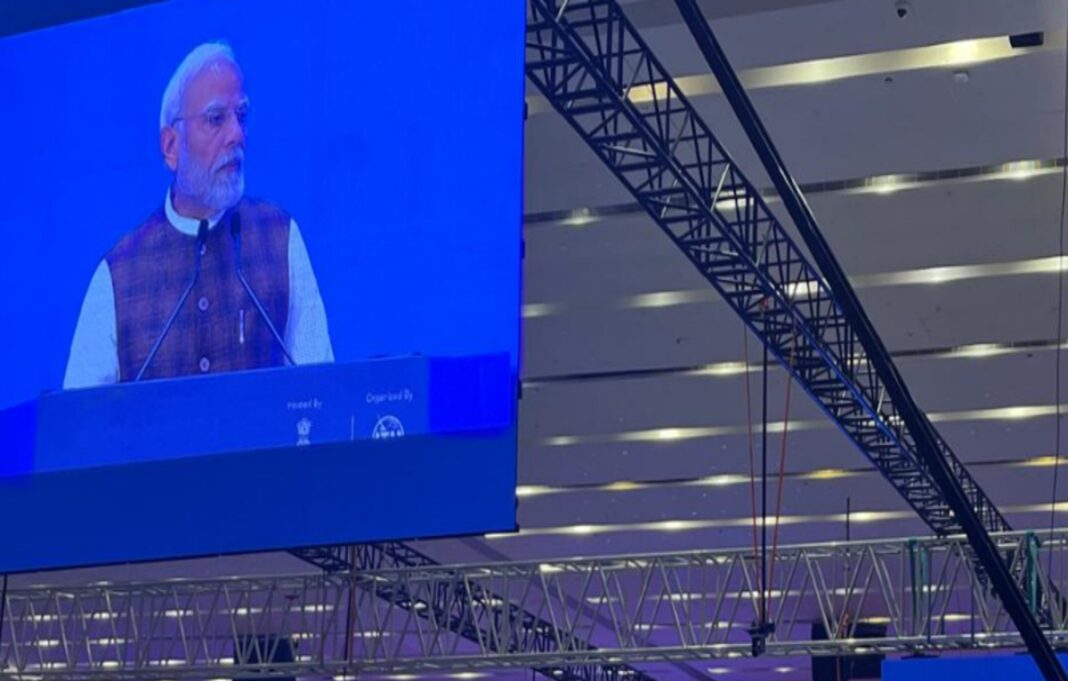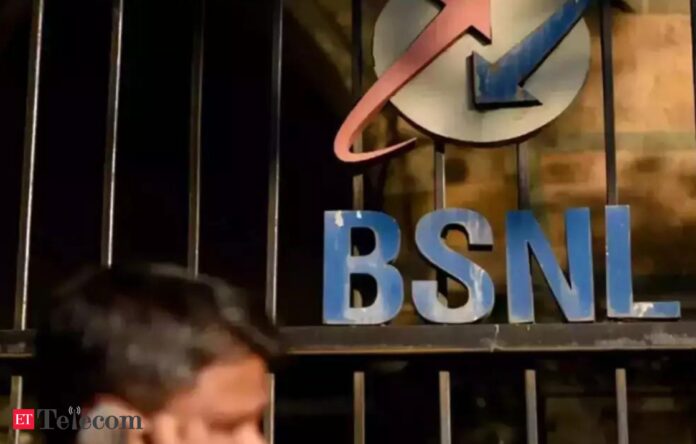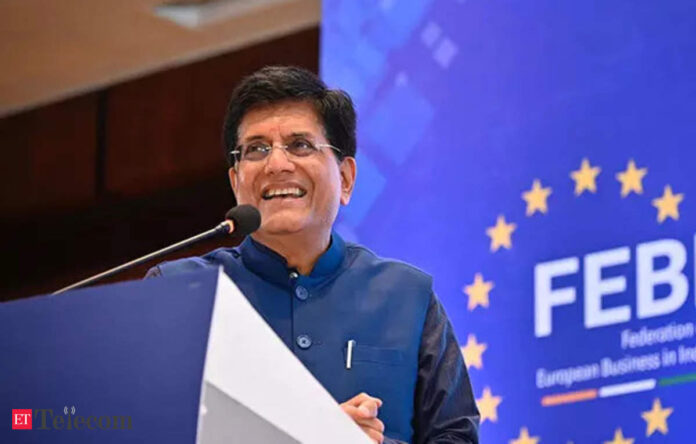In Short:
Indian Prime Minister Narendra Modi emphasized the need for a global regulatory framework for digital applications and artificial intelligence during the inauguration of the India Mobile Congress 2024. He highlighted that technology should be human-centric and urged the World Telecommunication Standards Assembly to create inclusive standards. Modi also noted significant investments in India’s semiconductor ecosystem and improvements in connectivity, ensuring mobile access even in remote areas. He celebrated India’s status as the second-largest 5G market and mentioned the drastic reduction in mobile data prices since the entry of Reliance Jio, which has enhanced digital initiatives like the Unified Payment Interface and Open Network for Digital Commerce.
PM Modi Advocates for Global Standards in Digital Technology
NEW DELHI: On Tuesday, during the inspiring inauguration of the India Mobile Congress 2024 and the World Telecommunication Standards Assembly (WTSA), Indian Prime Minister Narendra Modi emphasized the urgent need for a global regulatory framework aimed at enhancing the safe and responsible use of digital applications and artificial intelligence (AI).
Working Together for Security
In his address, Modi passionately remarked, “We should work together to protect our citizens. We have to take responsibility for this. Just as we’ve established a framework for the aviation sector, it’s crucial we do the same for the digital realm. WTSA needs to ensure that telecommunications are safe for everyone.”
Commitment to Data Protection
The Prime Minister stressed that in our increasingly interconnected world, security cannot simply be an afterthought. He highlighted India’s commitment to safety through the implementation of the Data Protection Act and the National Cyber Security Strategy. “I urge the Assembly to develop standards that are inclusive, secure, and adaptable to future challenges,” he urged.
Ethical AI for a Diverse World
Continuing his vision for a tech-forward future, Modi emphasized, “We need to create ethical AI that respects diversity. It’s essential we add a human-centric dimension to our advancements in technology during this revolutionary era.”
Boosting Semiconductor Development
During the session, Modi also reiterated the government’s dedication to expanding the semiconductor sector. “In India, we are making significant investments in the semiconductor ecosystem. We are focused on ensuring connectivity across the nation, ensuring that every home is connected,” he stated proudly.
Building a Strong Connectivity Network
As part of initiatives like the India Semiconductor Mission (ISM) and the Production-Linked Incentive (PLI) scheme, India is attracting global players, including the Tata Group, to develop a chipset manufacturing roadmap within the country. “We have established a robust network across every corner of India, including tribal regions and remote areas,” he added, noting the thousands of mobile towers installed and Wi-Fi access provided at railway stations and various public locations. Moreover, he mentioned the undersea cables connecting the Andaman, Nicobar, and Lakshadweep islands.
5G Rollout Success
Highlighting the accomplishment of the 5G rollout, Modi proudly announced that within just two years, a majority of Indians have access to this advanced technology. “Today, India stands as the second largest 5G market globally, and we are now setting our sights on developing 6G technology,” he shared enthusiastically, referring to the transformative reforms in the telecom sector as “unimaginable and incomparable.”
Affordability of Mobile Data
Furthermore, Modi pointed out the remarkable affordability of mobile data in India, asserting that, “Currently, the cost of Internet data in India is approximately 12 cents per GB, while in many countries, 1 GB of data is twenty times more expensive.”
The Impact of Reliance Jio
The Prime Minister attributed the drastic reduction in mobile voice and data tariffs since the disruptive entry of Mukesh Ambani’s Reliance Jio in 2016 as a significant factor that has propelled numerous state-run digital initiatives, including efforts for financial inclusion.
Boosting Digital Commerce
Highlighting the success of the Unified Payment Interface (UPI), Modi noted that it has opened doors for many new companies in the digital realm. He also showcased the importance of the Open Network for Digital Commerce (ONDC), stating that it’s set to introduce new technologies and streamline processes in the e-commerce space.
“ONDC is part of our wider digital public infrastructure aimed at decentralizing e-commerce and addressing monopolistic practices. We’ve seen how our digital platforms make everything easier,” Modi concluded, emphasizing his vision for an inclusive digital future.





